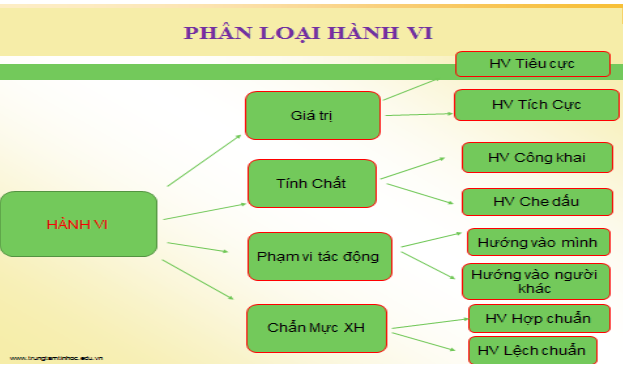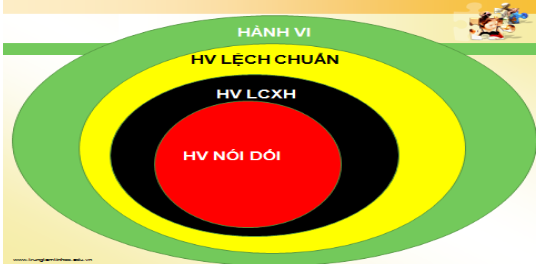Lying behavior in children and some interventions
Posted by Doctor Ma Van Tham - Department of Pediatrics - Neonatology, Vinmec Phu Quoc International General Hospital
Currently, the strong development of science and technology, the market economy is profoundly affecting each individual in society. Along with providing conditions for people to learn and develop, modern society also brings people a lot of pressure, and temptations such as stress and anxiety; Behavior is not consistent with social standards.... How to form personality in the young generation to meet the requirements and demands of society requires a methodical process.
1. Make a problem
Of all the Deviant Behaviors, lying can be considered as one of the first. This deviant behavior is related to other behavioral problems, especially delinquency. Research on lying shows how to predict delinquency and other forms in adulthood.

Nói dối là hành vi xuất phát từ một động cơ nhất định
2. Behavioral concept
Concept
Vietnamese dictionary : behavior is the general sum total of observable behavioral responses of a person in a given particular situation Dictionary of Psychology : Behavior is the interaction between a living organism and the surrounding environment, driven by external (stimulation) and internal (need) positivity.

Phân loại hành vi
Based on behavioral standards
Conformable behavior: is behavior in accordance with the standards of a group, a social community; behaviors that people expect from a certain member. Deviant behavior: Deviant behavior is behavior that does not meet the expectations of a certain group of people, it deviates from the standards of a group, a community.

Nói dối là hành vi lệch chuẩn xã hội
The American Psychiatric Association (DSM - IV) classifies Deviant Behavior in Children under sections 312 - 8, in which there are 15 diagnostic criteria of the following form:
Socially deviant (aggressive) behavior , anger, lying, theft, running away, suicide, withering, not speaking, dropping out of school, laziness) Instinctive deviant behavior (including sleep, eating, and sex) ) Autonomic deviant behavior (bedwetting, diarrhea, rumination) Motor deviant behavior (bad habits, repetitive movements, and psychomotor erratic) As such, there are many forms deviant behavior, Lying is considered as the third form of deviant behavior.
3. The concept of lying
Definition:
Portuguese dictionary “mentir” (to lie) is “lack of truth” English dictionary of lies: “to say or write something that you know is not true” French Dictionary to lie : "not to tell the truth, to say something untruthful, to conceal the truth, to intentionally bring someone into sin" Vietnamese dictionary: to lie is to tell the truth intentionally to conceal a fact. Some truth Children's views on lying
Lee and Ross (1997) explained that children identify a lie based on factual facts, that is, when a person discloses information that they If you believe it is true, but in reality it is not, the child will consider it as a lie
Lying is an act that comes from a certain motive, which is expressed externally by verbal actions. words but are consistent with the inner psychological expression of personality, carry unrealistic content, intentionally given by the speaker.
Consequences of lying:
Affecting children's personality development Other deviant behaviors appear: theft, aggression, dropping out of school, fighting, suicide Criminal behavior
4. Approach to diagnose child lying
The American Psychiatric Association (DSM-IV) classifies lying as standard deviation when:
“Lying to get things or favors, or to avoid obligations” Repeated repeatedly in within 6 months Based on social norms:
Lying behavior is recognized by Vietnamese society in both directions: appropriate and inappropriate.
In terms of ethical, religious and legal standards, lying is generally considered inappropriate. In communication standards, lying can be temporarily acceptable and sometimes necessary. Social standards on this behavior are not really clear and consistent. Based on the motivation leading to the lying behavior, the intensity (duration) of the lie, the accompaniment of other behaviors
5. Some intervention solutions
Be calm
Do not get angry and scold the child when he finds out he is lying. Stay calm and find a way to handle this to help your child overcome this bad habit. Try to find reasons why your child lies
For example: feeling important and appreciated. In that case, you can prevent lying by praising your child whenever he or she does a good job. No accusations
Reducing scolding encourages confession, not denial. You might say: I wonder how the candles are strewn all over the living room? I wish someone could help me pick up all the candles. Be empathetic Offer gentle punishments Explain why honesty is important Reassure your child that you will always love him no matter what mistakes he makes Build trust Don't ask, no Criticize Spending Time With Children

Nói chuyện với trẻ để tìm ra nguyên nhân trẻ nói dối
6. Lying Prevention
The most common measure is to create for them a favorable and good living environment so that they do not face pressure and can be honest in life.
Family side:
Parents themselves must be proactive in helping their children overcome their lying behavior. Parents need to be a good example for their children to follow. Parents need to be honest with themselves and with others in front of their children. Parents need to understand their child's desire for independence and desire to become an adult. Parents should encourage their children to interact with good friends, not restrict or forbid their children in relationships or healthy recreational activities. Don't put too much pressure on your child's academic performance. Parents need to become a friend of their children who can share with their children, helping them reduce pressure in life. Educating self-esteem so that children know how to self-regulate their behavior and behave appropriately. Parents need to regularly care and talk to their children, to avoid leaving them alone. Lying behavior needs to be detected early by the family so that it can be remedied in a timely manner. Seeking an intervention specialist if parental interventions are not effective School and society side:
Schools and society need to conduct educational propaganda to help students prevent abusive behaviors Lying that is not in accordance with social standards, supporting honest acts, frankly fighting, condemning lying acts In schools, it is necessary to have a counseling room under the responsibility of psychologists to work with teachers. Minimizing the number of students at risk and exhibiting standard deviation lying behavior Annual "check-ups" for children's psychology should be carried out for a comprehensive assessment of development and early detection. manifestations of lying behavior for timely correction and prevention. Young people:
Need to be aware of the consequences that lying can cause as well as the benefits of honesty. Honestly admit mistakes when making mistakes, build yourself the virtue of honesty in every small thing to big daily. Participate in life skills education classes, life values to train yourself personality. Seek the help of a psychologist for timely intervention when you appear to be lying. Lying behavior is the most common deviant behavior in children, affecting later personality development. Therefore, the prevention of lying is the job of the family, school, and society as a whole.
Please follow the website: Vinmec.com regularly to update many other useful information.
Bài viết này được viết cho người đọc tại Sài Gòn, Hà Nội, Hồ Chí Minh, Phú Quốc, Nha Trang, Hạ Long, Hải Phòng, Đà Nẵng.






